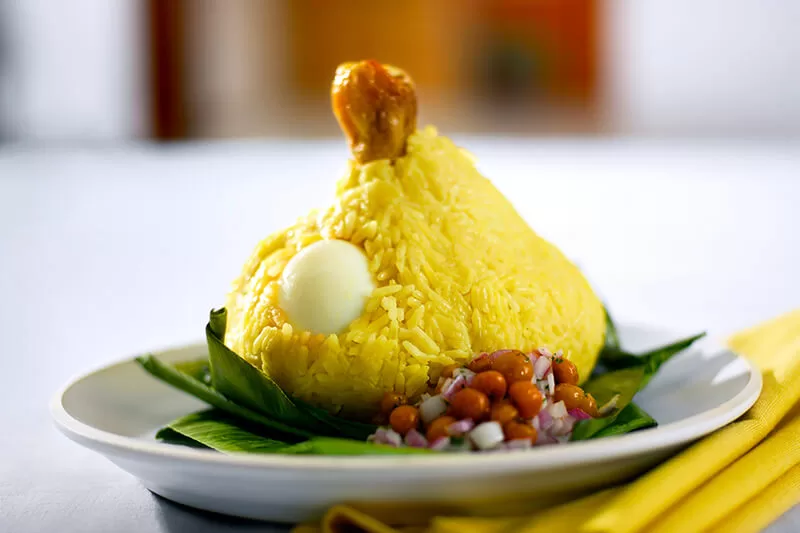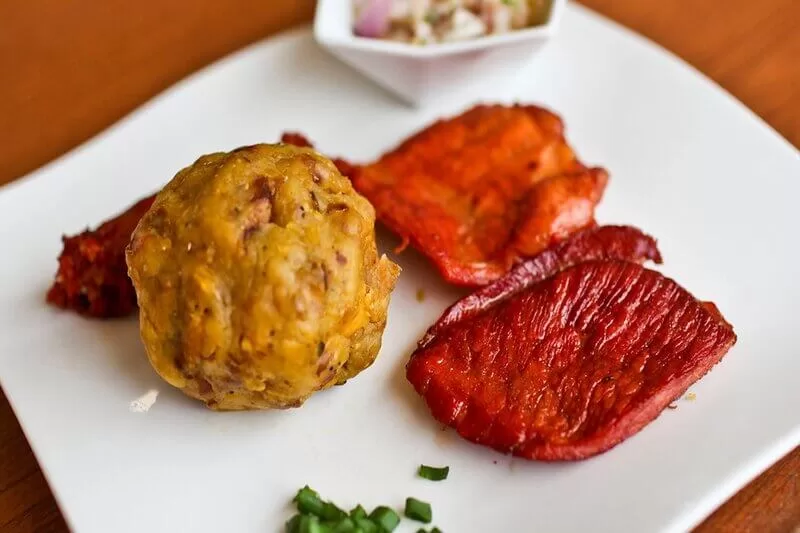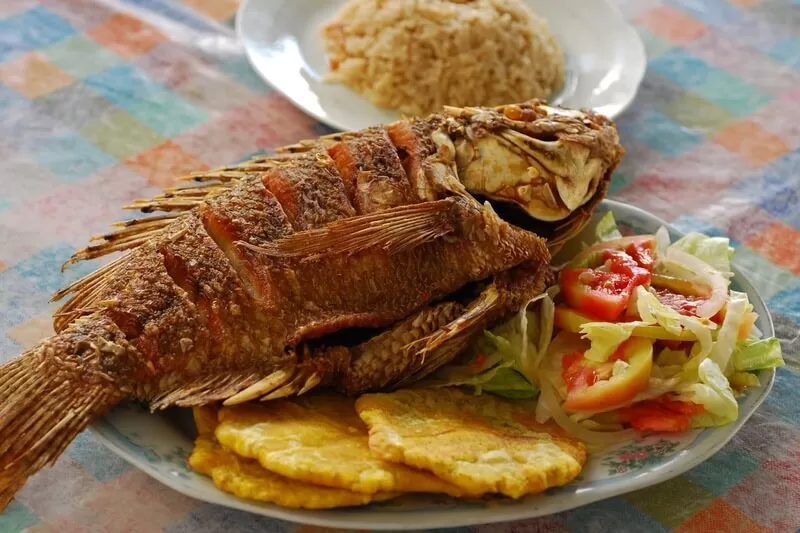Welcome to the jungles of Peru, where a gastronomic adventure awaits. The rainforest teems with diverse, peculiar ingredients. It’s a culinary paradise unknown to many.
The Peruvian Selva (jungle) cuisine is rich, diverse, and steeped in tradition. It’s an especial fusion of indigenous practices and local resources. The flavors are wild, yet harmonious, evoking an enchanting sense of discovery.
This article embarks on a flavorful journey through Peru’s Selvatic food. Together, we’ll unearth culinary treasures hidden in the lush Peruvian jungle. Come, savor the culinary gems of the Amazon.
Peru’s Selvatic food offers a rich tapestry of tastes. Vibrant fruits, robust roots, and unique proteins form its core. It’s an exciting journey for adventurous palates.
Native cultures have shaped Selvatic cuisine over generations. They forage for ingredients from the dense Peruvian rainforest. Each dish tells a unique, flavorful story.
Many recipes feature the bounty of the Amazon river. Freshwater fish are a common, protein-rich feature in Peru’s Selvatic food. Grilled, steamed or stewed, each preparation is an experience.
Unique fruits add color and flavor to Selvatic dishes. Aguaje, camu-camu, and lucuma are distinctively Amazonian. They contribute unique tastes and textures to Peru’s Selvatic food.
Native cultures have also tamed the jungle’s flora for staple crops. Roots like yuca and taro are ubiquitous. These starchy, hearty ingredients anchor many dishes.
The cuisine also showcases the animals of Manu National Park. Guinea pig, known as cuy, is a celebrated dish. It’s often served roasted, with an array of local herbs.
Exploring Selvatic cuisine is more than just tasting food. It’s understanding the culture, ecosystem, and history behind each dish. It’s about delving into the heart of the Peruvian rainforest.
Selvatic cuisine is an untamed culinary journey. From river to treetop, it embraces the rainforest’s plentiful offerings. Undoubtedly, it’s a gastronomic adventure waiting to be discovered.

Journeying through the jungle kitchen of Peru is an unforgettable encounter. It’s where culinary art meets the untouched Amazonian wilderness. It’s a delightful blend of flavors, colors, and traditions.
Peru’s Selvatic food is an expression of the region’s rich biodiversity. It reflects the varied flora and fauna of the rainforest. Each dish is a tribute to the forest’s bountiful nature.
Cooking classes are a popular way to experience this cuisine. Local chefs expertly guide visitors through traditional recipes. It’s an authentic, hands-on exploration of Peru’s Selvatic food.
Visitors learn to prepare dishes with special ingredients. The aguaje fruit, the paiche fish, and the yuca root are common staples. They learn to appreciate the unique tastes and textures.
Beyond the kitchen, the immersive experience continues. Guests often participate in foraging trips guided by local experts. They discover ingredients nestled in the lush rainforest.
These expeditions cover various Manu National Park’s ecosystems. Visitors learn about sustainable practices in harvesting ingredients. It’s a culinary adventure intertwined with environmental consciousness.
Adventure activities add to the excitement of this gastronomic journey. Canoeing down the Amazon River, or hiking in the jungle are common exploits. They offer a glimpse into the jungle’s daily rhythms.
Participants use their foraged ingredients to prepare Peru’s Selvatic food. The result is a meal that tastes of achievement and connection.
At night, dining experiences often take a communal turn. Travelers and locals share meals around a roaring fire. It’s an occasion for storytelling and cultural exchange.
Tasting Peru’s Selvatic food is a treat for the senses. Yet, immersing in its preparation and tradition is transformational. It provides a deeper connection to the land, its people, and their gastronomy.

The rainforest serves a banquet of unique, often surprising flavors. Among them, the practice of entomophagy stands out. This is the consumption of insects as food.
Embracing entomophagy is embracing a part of the jungle’s identity. Insects are plentiful and offer a sustainable protein source. For the adventurous, they present an intriguing culinary challenge.
Various insects feature in traditional rainforest dishes. The suri, a palm weevil larva, is a prime example. It’s often grilled on skewers, evoking a smoky, earthy flavor.
Another common insect delicacy is the leafcutter ant. These ants, known as bachacos, are collected in the rainy season. They’re a crunchy snack, rich in protein and nutrients.
Beyond entomophagy, the rainforest offers a variety of unique flavors. Fruits like cocona, aguaje, or cacao are local favorites. You can use this ingridients in various dishes, from savory sauces to sweet desserts.
The rainforest’s unique flavors also stem from its diverse flora. Leaves, roots, and seeds are essential components of many dishes. They bring depth and complexity to the region’s cuisine.
This culinary adventure offers a rich, tangible connection to the Amazon. Every bite tells a story of survival and adaptation. It paints a vibrant picture of life in the jungle.
Are you ready to take the plunge into this gastronomic adventure? A Manu Amazon Tour or a Manu Rainforest Tour awaits. It’s time to discover, taste, and cherish the unique flavors of the rainforest.

If you got any questions, please do not hesitate to send us a message. We reply within 24 hours!
+51 900 394 399
info@biomanuexpeditions.com
reservas@biomanuexpeditions.com
